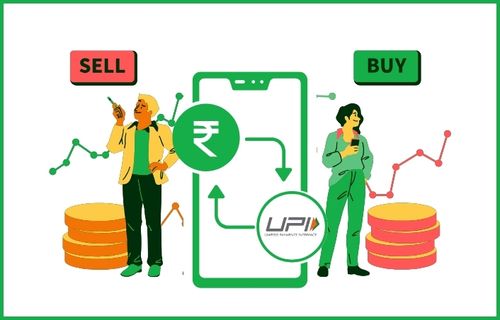🍴 ITC Cloud Kitchens: Coming to Your City
03 Jan 2024
🥗 The way to a food-loving nation’s heart is through its food delivery apps.
While Zomato saw massive orders from all over India on New Year’s Eve, including 125 roomali rotis in a single order from Kolkata, Swiggy was inundated with as many as 1,244 biryani orders every minute!
Zomato CEO Deepinder Goyal revealed that their delivery partners received ₹97 lakh in tips from customers!
After reading these mind-boggling numbers, it’s no surprise that one of India’s biggest conglomerates is taking to the cloud to expand on India’s food euphoria.
⛅ ITC’s Kitchens on Cloud 9
After a successful pilot in Bengaluru, the cigarette-to-FMCG conglomerate ITC is scaling its cloud kitchen business in four metros: Chennai, Mumbai, Delhi, and Kolkata. Benefitting from the order volumes of food delivery apps, ITC’s 23 cloud kitchens (19 in Bengaluru and 4 in Chennai) have already broken even.
ITC’s cloud kitchen operates 3 brands:
- ITC Aashirvaad Soul Creations - North Indian comfort food
- ITC Master Chef Creations - North Indian gourmet cuisines
- ITC Sunfeast Baked Creations - Bakery products
It is also considering expanding its menu to include breakfast and oriental cuisines.
So then why all the excitement about cloud kitchens?
🧑🍳 How does a cloud kitchen work?
Cloud kitchens, also called ‘ghost kitchens’ or ‘virtual restaurants', work on a delivery-only model. There is a well-equipped central kitchen that prepares and packs multiple cuisines in less time. There is no fancy in-dining ambience or serving staff, keeping the cost low. Their major expense is having a trained workforce of chefs and delivery drivers.
The low start-up cost saw a flood of cloud kitchen startups with over 20,000 active cloud kitchens operating in Delhi alone in November 2022. However, overcrowding and limited brand visibility forced even big players like Zomato and Swiggy to exit the cloud kitchen business.
Some players like Kitchens@ and Biggies Burger are expanding in the dine-in space to create an omnichannel brand that provides the convenience of the cloud kitchen and the experience of dine-in.
But things are different for an established brand like ITC.
✨ Many benefits of cloud kitchen excite ITC
Cloud kitchens account for only 10% of the orders in food delivery platforms, and dine-in restaurants 90%, hinting that people order food they like at restaurants. Being a well-known name in the hotel and FMCG space already, ITC has the potential to serve its existing consumer base, online and offline.
Its cloud kitchen business gets the benefit of the brand name, capabilities of the FSSAI-compliant packaged foods business, and culinary expertise of ITC Hotels' chefs. Cloud kitchen allows ITC to take the order volume advantage of the quick service model and diversify its customer base with low overhead costs.
📜 Fun fact : ITC cloud kitchens have delivered over 1 million orders with an average order value of ₹900, double that of the industry.
At the same time, ITC can use this new business to garner consumer feedback for future FMCG products, new menu offerings in its hotels, and industrial ready-to-eat and frozen food products.
There’s potential in the overall market too. According to a report by consulting firm Wazir Advisors, India’s cloud kitchen market is expected to grow at a CAGR of 24% from $800 million in FY22 to $1.9 billion in FY26.
The bottomline
The growing internet penetration, rising disposable income of the young population, long working hours, and lack of interest in cooking at home are contributing to the growth of online food delivery services, paving the way for the cloud kitchen industry in India.
And the grass looks green indeed for ITC, which already has a big presence in the Indian culinary sphere.
Did you find this insightful?
Binge worthy news...
The Centre has increased the windfall profit tax on crude oil to ₹2,300 per tonne from ₹1,300 per tonne from yesterday. Simultaneously, it has eliminated windfall taxes on diesel (50 paise per litre) and Aviation Turbine Fuel or ATF (₹1 per litre). 🔗
Shares of Yes Bank surged for the 3rd consecutive session to hit their 52-week high amidst heavy trading volumes after the bank received ₹150 crore from a single trust for its non-performing asset (NPA) portfolio sale. 🔗
A report by BankBazaar revealed that online spends using credit cards in 2023 grew 11.6% Y-o-Y to ₹7,532 from ₹6,750 in 2022, with co-branded credit cards - especially airline and fuel credit cards - being the most favoured. 🔗
FMCG giant HUL has received GST demand and penalties from 5 state authorities amounting to ₹447.5 crore for issues such as disallowance of GST credit, and salaries and allowances paid to expats. 🔗

Read More
 Travel
TravelEaseMyTrip recently announced fund raising plans of around ₹1,000 crore. The company listed on the stock exchanges in 2020 and has captured around 8% of the online travel agent market. How did it reach here? Read to find out!
04 Jan 2024
 Markets
MarketsNational Payments Corporation of India (NPCI) is launching the Beta phase of 'UPI for Secondary Market' from Jan 1, 2024. Investors can use this feature to make UPI payments for buying stocks on BSE and NSE.
02 Jan 2024
Get Market Brew straight to your mailbox
We will never spam you!
This newsletter/e-mail is meant solely for educational and/or informational purpose of the recipient



